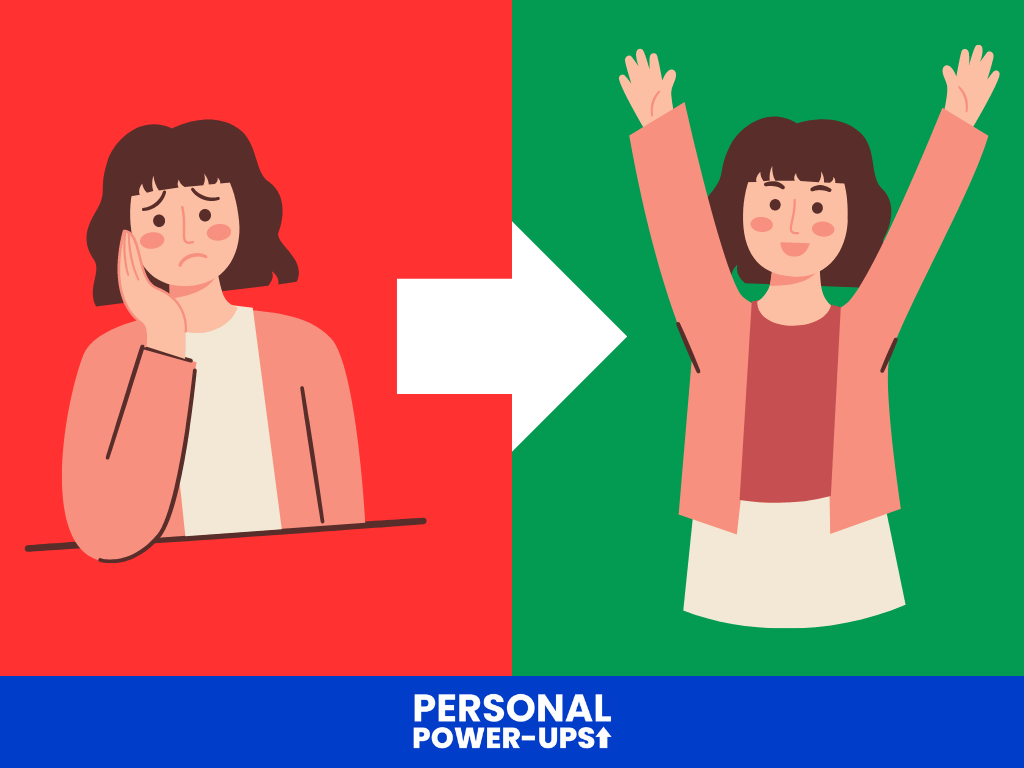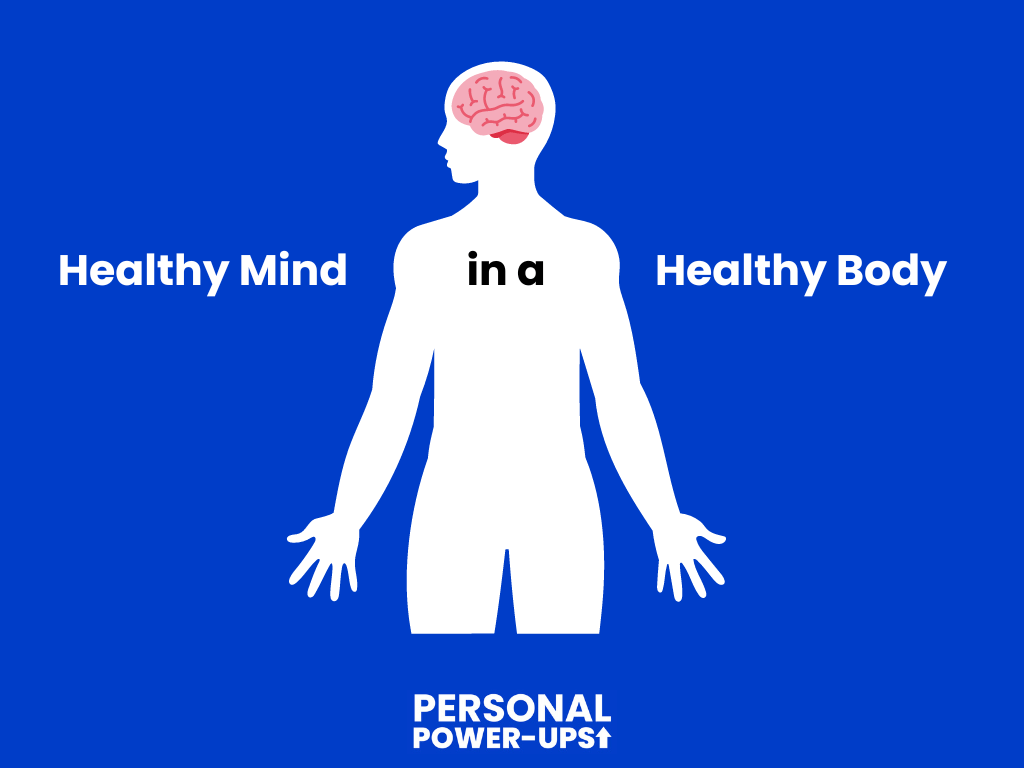Strengthen Your Mental Health & Mindset
Your mental health and mindset is the foundation of your overall well-being. It affects how you think, feel, and handle everyday challenges. Just like physical health, taking care of your mind is crucial.
Table of Contents
Mental Health & Mindset Power-Ups
If you’d like to read more about improving your mental health and mindset, be sure to check out our collection of articles below.
What Does Mental Health Entail?
Your mental health is your emotional and psychological well-being. It affects how you think, feel, and act in daily life. Like how you handle stress, relate to others, and make decisions.
Good mental health doesn’t mean being happy all the time (no one is always happy), but it does mean being able to manage your emotions, and cope with challenges that pop up.
It’s also about having a healthy balance between different areas of your life, like work, relationships, and personal goals. You should be able to bounce back from setbacks as well, even though they can kill your mood.
More concrete: mental health includes things like self-esteem, self-trust, resilience, emotional regulation, and forming healthy connections with other people.

Why is Taking Care of Your Mental Health & Mindset Important?
It’s important to take care of your mental health and minset, as it influences every part of your life: how you think, feel, and act. When your mind is in a good place, you can handle stress, maintain healthy relationships, and make better decisions. It also allows you to bounce back from challenges and enjoy the good moments in life.
On the flip side, neglecting your mental health can lead to problems like anxiety, overstimulation, depression, and burnout. These can mess with your mood, your ability to work, and how you connect with others. This bad mental health can lead to a toxic mindset, resulting in negative thinking, like feeling behind in life. Over time, poor mental health can even take a toll on your physical health, leading to issues like a weakened immune system, or heart problems. The relationship between mental health and physical health has been found countless times in medical research.
So, taking care of your mental health is just as important as looking after your physical health, and both are closely connected. A healthy mind in a healthy body, that’s something we should all aspire to.

How Can I Improve My Mental Health & Mindset?
Improving your mental health works by building habits that support your emotional and psychological well-being. Here are some practical ideas to help:
Practice Self-Care Consistently
Make time for activities that relax you, bring you joy, or help you recharge. This could be anything from exercise, meditation, reading, or spending time in nature. You could also try out some positive affirmations or positive self-talk exercises as a way to improve your mood and self-image.
Journaling
Journaling is a great way to connect with yourself and discover what’s on your mind. I also find it a great way to work on my mental health, as it can provide clarity when your thoughts are distorted by negativity. It can even help you shift from poor to rich thinking.
We have a collection of journaling prompts available for inspiration:
- Journal prompts for self-love and self-esteem.
- Journal prompts for forgiveness.
- Journal prompts for overthinking.
- Beginner journal prompts for shadow work.
Stay Physically Active
Exercise isn’t just good for your body; it’s great for your mind too. Even a short walk or stretching session can lift your mood and reduce stress. It can also help you feel more present by taking your mind of the hustle and bustle of daily life.
Find Balance in Diet, Sleep, and More
Eating nutritious foods and getting enough sleep are important for mental clarity, energy, and emotional stability. It’s all about balance. In the same vein, a dopamine detox might be helpful to find further balance in your life.
Connect with Others
Building strong, supportive relationships improves your mood and gives you a sense of belonging. Reach out to friends or family, or join groups that interest you. We have an entire section devoted to improving your social life, so be sure to check that out.
Manage Your Stress
Practice relaxation techniques like deep breathing, mindfulness, meditation, or yoga. These can help you stay calm and centered during stressful times, when you might struggle with things like overthinking or catastrophizing. Another helpful exercise is the Catch It, Check It, Change It process to reframe your thoughts.
Set Realistic Goals
Whether big or small, working toward personal goals can give you a sense of purpose and accomplishment, which is great for mental well-being. If you struggle with your mindset, you might have a fixed mindset. In that case, transforming this to a growth mindset can do wonders.
Work on Your Thinking
The way you think has a big impact on your mental health and overall mindset. Negative and destructive thoughts can creep in and poison your mind. That’s why it’s important to be aware of your thoughts and mindset, and actively work on improving them. There are several mindset upgrades you can start applying today:
- The kintsugi mindset that helps you embrace your failures and uses them to make you even stronger.
- The growth mindset that teaches that you too can grow, and that many things in life aren’t fixed.
Discover Yourself
Self-discovery is another great way to improve your mindset and mental health. You could try a personality test or use the Enneagram to discover what motivates your or holds you back.
Talk About Your Feelings
Expressing how you feel, whether through journaling or talking with someone you trust, helps release built-up emotions and clears your mind.
Seek Professional Help When Needed
There’s zero shame in asking for help. If you’re feeling overwhelmed, talking to a therapist or counselor can provide valuable support and tools for managing your mental health.






